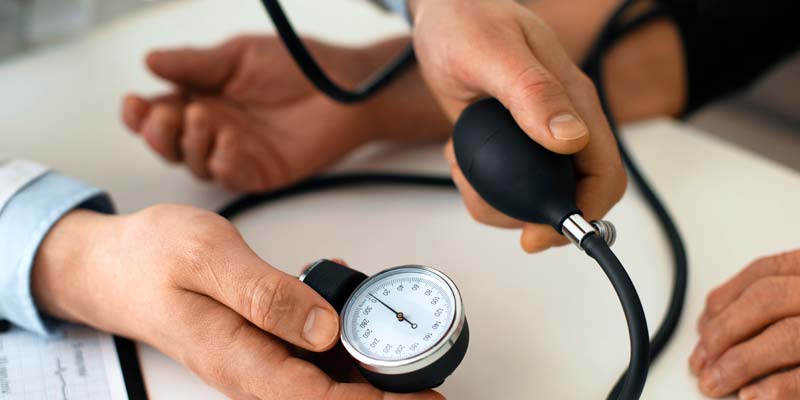Blood pressure (BP) is a crucial indicator of overall health. It measures the force of blood against the walls of your arteries as your heart pumps it around your body. Understanding your average blood pressure can help you maintain cardiovascular health and prevent severe conditions such as heart disease and stroke. This guide will delve into what average blood pressure is, how to measure it, the factors influencing it, and tips for maintaining healthy levels.
What is Blood Pressure?
Blood pressure is the measurement of the pressure in your arteries during the active and resting phases of each heartbeat. There are two numbers involved in a BP reading:
- Systolic pressure: This is the first (top) number, indicating the pressure in your arteries when your heart beats.
- Diastolic pressure: This is the second (bottom) number, indicating the pressure in your arteries when your heart rests between beats.
For example, a blood pressure reading of 120/80 mmHg (millimeters of mercury) means you have a systolic pressure of 120 and a diastolic pressure of 80.
Normal Blood Pressure by Age

Healthy blood pressure varies by age and gender. For men aged 18-39, it’s 119/70 mm Hg, and for women, it’s 110/68 mm Hg.
Normal blood pressure for men aged 40-56 should aim at 124/77 mm Hg, while normal blood pressure for women in the same age group should have 122/74 mm Hg.
For those aged 60 and above, healthy blood pressure for men is 133/69 mm Hg, and for women is 139/68 mm Hg.
Blood Pressure Normal Range
Average blood pressure can vary depending on age, gender, and overall health. However, the American Heart Association (AHA) provides general guidelines:
- Normal BP: Systolic less than 120 mmHg and diastolic less than 80 mmHg
- Elevated BP: Systolic between 120-129 mmHg and diastolic less than 80 mmHg
- Hypertension Stage 1: Systolic between 130-139 mmHg or diastolic between 80-89 mmHg
- Hypertension Stage 2: Systolic 140 mmHg or higher or diastolic 90 mmHg or higher
- Hypertensive crisis: Systolic higher than 180 mmHg and/or diastolic higher than 120 mmHg, requiring immediate medical attention
How to Measure Blood Pressure
Measuring BP accurately is crucial for monitoring and maintaining cardiovascular health. Here are some methods:
1. Manual BP Cuff
Using a manual BP cuff and a stethoscope, a healthcare professional can measure your BP. This traditional method is highly accurate when performed correctly.
2. Digital Blood Pressure Monitors
Digital monitors are convenient for home use. They typically consist of an arm cuff that inflates automatically and a digital display that shows your reading. Ensure the cuff fits properly for accurate results.
3. Ambulatory Blood Pressure Monitoring
This method involves wearing a BP monitor for 24 hours and taking readings at regular intervals. It’s beneficial for diagnosing conditions like white-coat hypertension, where BP rises in a clinical setting but not in everyday life.
Factors Influencing Blood Pressure
Several factors can influence your BP, including:
1. Age
BP tends to increase with age due to the stiffening of arteries and accumulation of plaque.
2. Gender
Before age 55, men are more likely to have high BP. After menopause, women are at higher risk.
3. Diet
A diet high in sodium, low in potassium, and excessive alcohol consumption can raise blood pressure.
4. Physical Activity
Regular physical activity helps maintain a healthy weight and reduces BP. Sedentary lifestyles can contribute to hypertension.
5. Stress
Chronic stress can lead to temporary spikes in BP and unhealthy coping mechanisms like poor diet and smoking.
6. Genetics
A family history of hypertension increases your risk.
7. Weight
Being overweight or obese forces your heart to work harder, increasing BP.
8. Medical Conditions
Conditions like diabetes and kidney disease can affect BP.
The Importance of Maintaining Average Blood Pressure
Maintaining an average BP is crucial for preventing cardiovascular diseases, stroke, kidney damage, and other health issues. It ensures that your heart and arteries are not under excessive strain, promoting overall health and longevity.
Lifestyle Changes to Maintain Healthy Blood Pressure
Here are some effective lifestyle changes to help maintain a healthy BP:
1. Adopt a Healthy Diet
A diet rich in fruits, vegetables, whole grains, and lean proteins can help lower blood pressure. The DASH (Dietary Approaches to Stop Hypertension) diet is specifically designed for this purpose. It emphasizes:
- Reducing sodium intake
- Eating potassium-rich foods like bananas and spinach
- Limiting red meat and sugary beverages
2. Regular Physical Activity
Aim for at least 150 minutes of moderate-intensity exercise per week, such as brisk walking, cycling, or swimming. Physical activity strengthens the heart, enabling it to pump blood more efficiently.
3. Maintain a Healthy Weight
Losing even a small amount of weight can significantly lower BP. Focus on sustainable weight loss through a balanced diet and regular exercise.
4. Limit Alcohol and Avoid Smoking
Excessive alcohol consumption and smoking can raise BP. Limiting alcohol to moderate levels and quitting smoking can improve cardiovascular health.
5. Manage Stress
Techniques like meditation, deep breathing, yoga, and mindfulness can help manage stress and reduce BP.
6. Monitor Your BP
Regularly checking your BP at home can help you keep track of your levels and adjust your lifestyle accordingly. Use a reliable monitor and keep a log of your readings.
Medications for Blood Pressure Management
If lifestyle changes are insufficient, medications may be necessary to manage high BP. Common types include:
1. Diuretics
These help your kidneys remove excess sodium and water from your body, reducing blood volume and pressure.
2. Beta-Blockers
These reduce your heart rate and the force of each beat, lowering BP.
3. ACE Inhibitors
These help relax blood vessels by blocking the formation of a hormone that narrows blood vessels.
4. Calcium Channel Blockers
These prevent calcium from entering heart and blood vessel muscle cells, leading to relaxed blood vessels.
5. Angiotensin II Receptor Blockers (ARBs)
These block the action of a hormone that causes blood vessels to constrict.
Consult with a healthcare provider to determine the best medication for your specific needs.
When to Seek Medical Attention
It’s crucial to seek medical attention if you experience:
- BP consistently above 140/90 mmHg
- Severe headaches
- Shortness of breath
- Chest pain
- Irregular heartbeats
These symptoms could indicate a hypertensive crisis or other serious conditions.
The Role of Regular Check-Ups
Regular check-ups with your healthcare provider can help monitor your BP and overall health. These visits allow for early detection and management of potential issues.
Conclusion
Understanding and maintaining average blood pressure is vital for overall health. By adopting a healthy lifestyle, regularly monitoring your BP, and seeking medical advice when necessary, you can prevent serious health issues and enjoy a longer, healthier life. Remember, small changes can make a significant impact, so start taking steps towards better BP management today.

